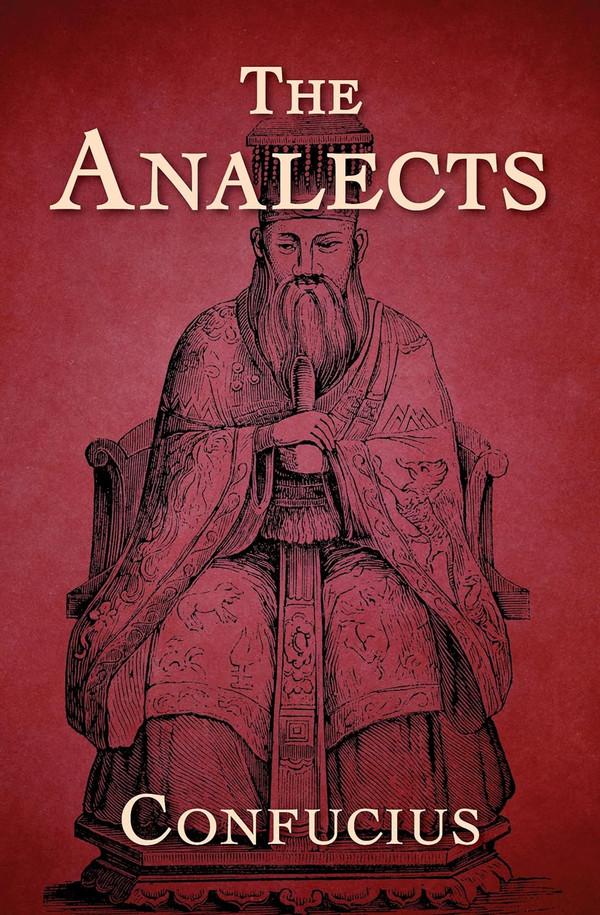Arianna G.'s Key Ideas from The Analects (论语)
by Confucius (孔子)
Ideas, facts & insights covering these topics:
8 ideas
·3.1K reads
28
1
Explore the World's Best Ideas
Join today and uncover 100+ curated journeys from 50+ topics. Unlock access to our mobile app with extensive features.
Life Attitude in Wealth and Poverty
子贡曰:“贫而无谄,富而无骄,何如?”子曰:“可也。未若贫而乐,富而好礼者也。”
To be content and grateful when poor, to be courteous and appropriate when wealthy, is a good attitude towards life.
Wealth and poverty are external circumstances that we don't have control over. Rather than trying to attain wealth by whatever means possible, we should simply will the good and accept whatever worldly circumstance results. Kierkegaard mentions how one can slip into perdition by not having the perseverance to endure till the end. Chinese philosophy offers countless advice on how to cultivate our living to facilitate enduring till the end.
56
632 reads
A Godly Person Should Be a Generalist
子曰:“君子不器”。
This saying has two meanings: be a generalist and be an end in itself rather than a means to an end. When one is a specialist, one does not have significant liberty and lives life enslaved by external factors like finances and career, and internal circumstances like the passions. An ungodly person doesn't have a choice but to be enslaved because he can't choose between the good and the worldly rewards. But a godly person chooses only the good, and thus has the freedom and responsibility to cultivate all his intellect and faculties for the sake of serving the good.
56
493 reads
The True Act of Knowing
子曰:“由!诲女知之乎!知之为知之,不知为不知,是知也”。
If you know it you know it, if you don't know it you don't know it, this is the true act of knowing.
This is similar to willing the good in the sense that you either will the good or you don't, there's no middle ground or room for ambiguity. If you know what's right but don't follow through with action, then you lose your knowledge of what's right and are the same as if you've never know what's right.
54
431 reads
Must Not Depart from the Good For Even A Single Instant
子曰:“富与贵,是人之所欲也;不以其道得之,不处也。贫与贱,是人之所恶也;不以其道得之,不去也。君子去仁,恶乎成名?君子无终食之间违仁,造次必于是,颠沛必于是。”
It's human to desire wealth and recognition, but to acquire them via illegitimate means is immoral. It's human to dislike poverty and baseness, but to distance oneself from them via illegitimate means is deplorable. A good person does not betray love for even a single instant. He is faithful to love in wealth and poverty, in affluence and adversity, in pleasurable circumstances and in suffering.
54
375 reads
Willing the Good Means You Shouldn't Frown on a Frugal Living Style
子曰:“士志于道,而耻恶衣恶食者,未足与议也。”
If you will the good and you find a life of simplicity, humbleness, and frugality a shame, then you are not yet ready to embark on the path to truth.
The fact is, as Kierkegaard puts it, to will the good means to will it without considering the rewards and punishments it may bring. In other words, one should be willing to undergo any suffering if one is going to will the good in truth. Thus, wanting the good and finding suffering humiliating is doublemindedness.
51
316 reads
God's Commandments are Not a Code of Conduct
孔子说:“君子对于天下的事情,没规定要怎样干,也没规定不要怎样干,只要怎样干合理恰当,便怎样干。”
A good person doesn't live by any set of guidelines or code of conduct. An action can be performed in one circumstance, and its opposite can be performed in another situation. So there are no strict guidelines, any action is permissible given the right circumstances. Love is the sum of God's commandment. A good person never betrays love, although his law-abiding actions may appear to be contradictory but are actually perfectly fulfilling the law in all its nuances and manifestations.
50
304 reads
How Society Runs When It Consists of Imperfect Beings
孔子说:“君子怀念道德,小人怀念乡土;君子关心法度,小人关心恩惠。”
子曰:“君子喻于义,小人喻于利。”
Good folks seek after truth and justice; weak folks aim for profits and rewards.
While great books like Kierkegaard and The Analects teach us to cultivate a good will, not everyone succeeds in doing so. Society is comprised of diverse people, those who have a good will, and those who are double-minded. It suffices to say that those with a good will will seek the good in any and all circumstances, while the double-minded will seek the good when it's profitable, and seek otherwise when it's not.
49
285 reads
Don't Over-scrutinize a Good Person's Small Flaws
孔子道:“君子不可以用小事情考验他,却可以接受重大任务;小人不可以接受重大任务,却可以用小事情考验他。”
子曰:“君子贞而不谅。” 孔子说:“君子讲大信,却不讲小信。”
子夏说:“人的重大节操不能踰越界限,作风上的小节稍稍放松一点是可以的。”
It's often the case that a good person focuses his attention on the big hits and misses that he neglects the small hits and misses. A person who is deeply committed to willing the good would often fail to do small good acts but never fails to do big good acts, because he's trying to make the biggest bang for the buck given limited resources. So when judging a person, one shouldn't overscrutinize small mistakes.
51
270 reads
IDEAS CURATED BY
CURATOR'S NOTE
The Analects by Confucius
“
Discover Key Ideas from Books on Similar Topics
10 ideas
The Boy, the Mole, the Fox and the Horse
Charlie Mackesy
10 ideas
The Boy, the Mole, the Fox and the Horse
Charlie Mackesy
5 ideas
The Dreamer. The Realist. The Critic.
medium.com
Read & Learn
20x Faster
without
deepstash
with
deepstash
with
deepstash
Personalized microlearning
—
100+ Learning Journeys
—
Access to 200,000+ ideas
—
Access to the mobile app
—
Unlimited idea saving
—
—
Unlimited history
—
—
Unlimited listening to ideas
—
—
Downloading & offline access
—
—
Supercharge your mind with one idea per day
Enter your email and spend 1 minute every day to learn something new.
I agree to receive email updates








